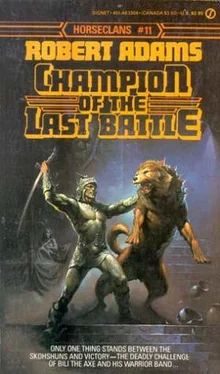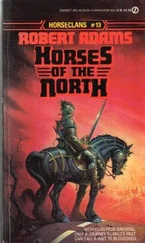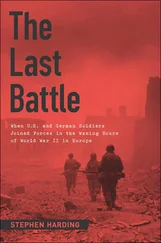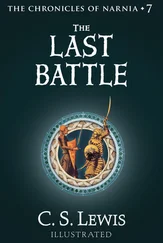In recent weeks, the Skohshuns had given every outward appearance of having settled in for a long, passive, interdictive siege. But Bili knew them for the stark fighters that they were and had been dead certain that they were but resting, licking their wounds and planning new and different means of striking again at the walls and the city within them.
Stealthy nighttime patrols by Whitetip and various of the Kleesahks had verified that the Skohshuns were hard at work in constructing stone- and spear-throwing engines of several varieties and sizes. But as both the prairiecat and the huge hirsute hominids had had, perforce, to take a roundabout way to and from the camp, they had never spotted the construction site at the very foot of the front slope or what was being built there ... until today. That was why the Skohshuns had sent up the Ganiks with their Witchman weapons: fear that the watchers upon the front walls and towers might espy the work going on below.
Now the certain tactics of the coming assault—the third, against the front wall, it would be—were crystal-clear to Bili’s quick, perceptive mind.
The Skohshuns would drag their engines into place on a dark night, setting them, their crews and the projectiles for them somewhere just out of easy bowshot, probably in preselected and prepared positions. A chosen group of shock troops would be massed just below the front bulge of the mountain—that up which the roadway snaked its way—and there they would wait, protected from any but high-arching, indirect loosings by that same, rocky bulge. Possibly they would also send all three of the Ganiks armed with the Witchman weapons, these “ryfuhls,” up the slopes during the hours of the dark to, with the first light, aid the engines in making the walls and the tower-engine positions most unsalubrious places for humans or Kleesahks.
Then, when it seemed that the time was ripe, those long, long, immensely long lengths of timber would be somehow set up on end. Then, probably guided by ropes, their other ends would be lowered to span the roadway cuts and the difficult slopes to finally come to rest—if they were long enough, and the parapet of the front wall was actually less than a hundred feet above the level of the plain when measured in a straight line—on the very walls of the city.
The Skohshun engines would be able to continue their workup to and until only bare moments before the first Skohshun was close enough to come onto the wall of New Kuhmbuhluhnburk. With a few score or more Skohshuns upon the front wall, the engines would probably either increase their range and begin dropping boulders and flammables within the city itself, or change direction to support the other attack, most likely one against the east wall. And, all things considered, the scenario Bili’s mind conjured up might very well succeed where earlier, less well-planned ones had failed.
That was not a chance that Bili, feeling keenly the crushing weight of his undesired responsibilities, was willing to take. Several optional plans for the destruction of these oversize scaling ladders crowded the young thoheeks’ mind. Whether or not the guards and craftsmen were slain, the devices and raw materials must be fired, burned to ashes. But how best to accomplish this aim?
He could have Lehnduhn the Kleesahk retrace his way back up the forward slope to the riflepit and there either slay or incapacitate Counter Tremain, the Ganik; then man the wall engines and the six larger ones positioned just inside the forward wall, load them with oil pots and pitchballs and loose at a high angle designed to drop them directly at the base of the slope, possibly accompanied by a few volleys of fire arrows for insurance that there would be fires and casualties, as well.
But careful as these Skohshuns seemed to be in most other matters, he reflected, they were certain-sure to have made some provisions against this kind of attack on their cliffside site. Moreover, there was a slight overhang of rock down there, and a seepage pool of water beneath it, as he recalled—ill-smelling water, true, unpalatable to either man or beast, but wet enough to help retard fires, nonetheless, were there men still about who had the time and ability to so use it.
Of course, he could send a number of the Kleesahks down by night—despite their height and size, they could move as silently as cats and, also like cats, they could see well in almost no light at all—to set the devices afire, but these Kleesahks, because of their size, strength and other talents, were too valuable a resource to encourage Bili to risk them on so chancy a venture. Now if all of them were capable of the mindcloudings that Pah-Elmuh, Oodehn and some few others of the strange hominids had mastered ... but then, if warhorses had wings warfare would be fought significantly differently.
Dismissing most of the officers and nobles still at table, the Thoheeks and Chief of Morguhn began to plan the sortie that he would lead out of the mountain fortress in a few hours. He would need men and women upon whom he knew he could depend in a pinch, yet he also could not, dared not, take all of these, and for various reasons there were certain individuals who had to be stricken from the list, automatically.
The Freefighter officers, Captain Fil Tyluh and Acting Captain Frehd Brakit, could not be spared from the garrison under any but the most extreme circumstances, for they were the most experienced—indeed, the only truly and long experienced—siege engineers in the city. It was likewise out of the question to risk the loss of Pah-Elmuh and his Kleesahk surgical and medical assistants. And most of the members of Bili’s staff were too important to the ongoing defense to chance losing them in the course of a risky and highly dangerous, though very necessary, midnight sally forth against opposition of unknown quality and quantity.
This would tend to strike Lieutenant Kahndoot, the very levelheaded and most competent of the Moon Maidens, Vlahkos Kahmruhn of Skaht, Mikos of Eeahnopolis, Hornman Gy Ynstyn, Sir Yoo Folsom and old Vahrtahn Panosyuhn, the Ahrmehnee, and of course Rahksahnah, who was giving suck to their twin infants.
“Hmmm,” he pondered. “This is going to take more than a mere couple of hours of thought, so it might be better to plan it all for tomorrow night. It didn’t appear that those Skohshuns had enough materials to finish those other two immediately, so we should have at least that little amount of time yet to go.”
Shoving it all into a corner of his mind, he beamed a farcall to Kahndoot on the forward wall. “How many of our special troops has that tame Ganik of ours shot, so far, little sister?”
Her return mindspeak came: “So many that we’re almost out of sawdust to stuff them afresh, Bili. Those projectiles his thing throws burst with enough force to near’ tear the heads off these dummies, or to rip huge, well-nigh unrepairable holes in the fabric if they chance to strike farther down.
“Moreover, one of the Maidens who was holding up a dummy, earlier this morning, had a tiny bit of what looks like lead driven completely through her left cheek and into her tongue. She was far from pleased by the happenstance, has been heard to say some rather uncomplimentary things about this plan of yours and about you, personally, big brother—mostly some speculations upon your ancestry, appearance, daily habits and preferences, general level of intelligence and suchlike.”
Bili chuckled to himself and beamed, “And does my little sister agree with this aggrieved Maiden?”
“In some of her observations, oversized brother,” Kahndoot replied, “but not in all, not in all. However, I would like to know how much longer we are going to play this game with that Ganik yonder.”
Читать дальше












